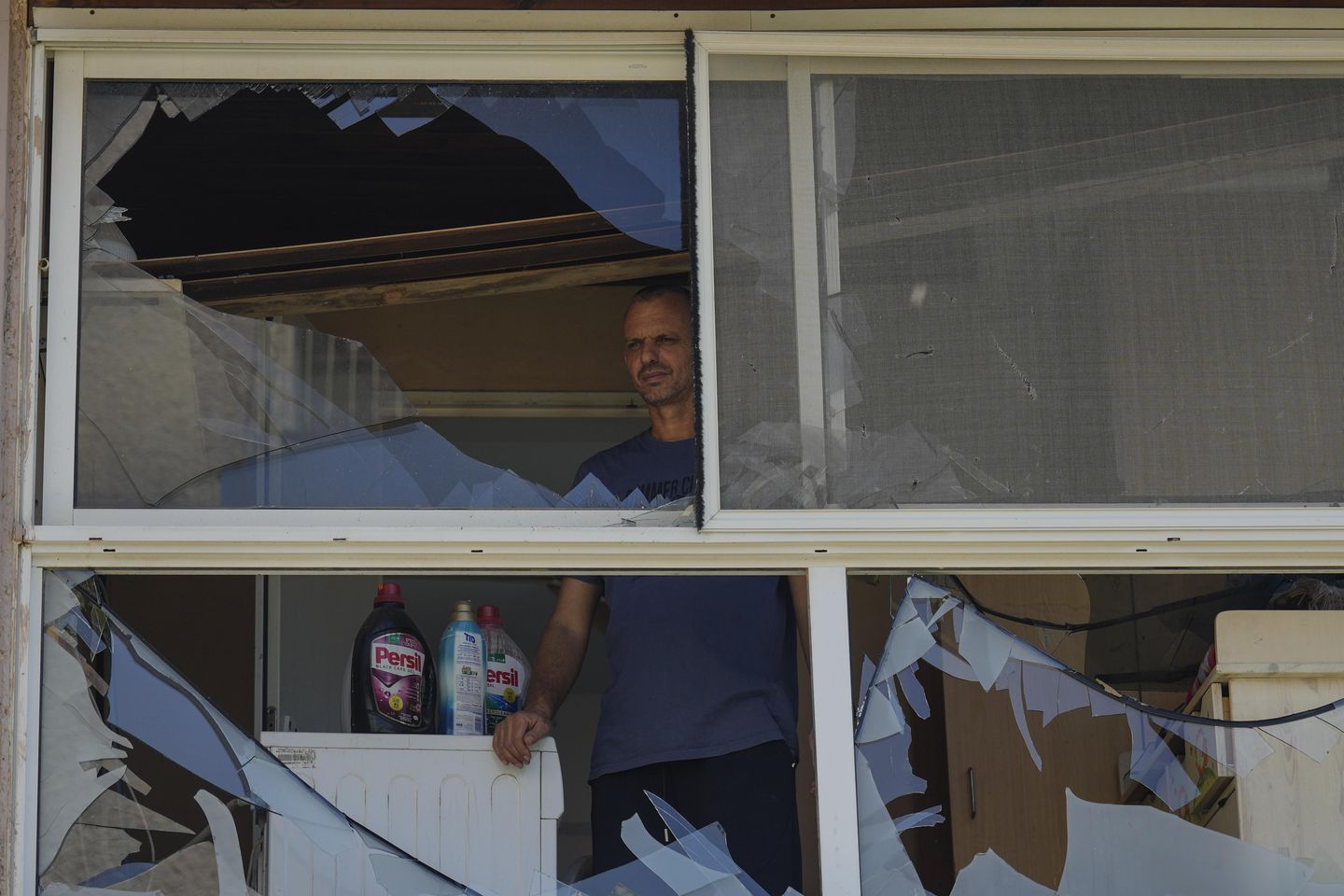Israel conducted airstrikes in Lebanon on Sunday in a preemptive attack that Israel viewed as necessary to counter a potential Hezbollah assault. The airstrikes targeted Hezbollah positions near the border between Israel and Lebanon, in an attempt to prevent any future attacks on Israeli territory.
The Israeli military stated that the airstrikes were carried out in response to intelligence indicating that Hezbollah was planning to launch an attack on Israel. The airstrikes targeted several Hezbollah strongholds in southern Lebanon, including weapons depots and military infrastructure.
Hezbollah, a Lebanese militant group and political party, has long been a thorn in Israel’s side. The group has been involved in numerous conflicts with Israel over the years, including the 2006 Lebanon War. Hezbollah is backed by Iran, Israel’s arch-nemesis in the region, and is considered a terrorist organization by Israel and several other countries.
The Israeli government justified the airstrikes as a necessary measure to protect its citizens from potential harm. Prime Minister Benjamin Netanyahu stated that Israel would not hesitate to take action against any threats to its security, and that the airstrikes were a clear message to Hezbollah that it would not be tolerated.
The airstrikes have sparked fears of a new conflict between Israel and Hezbollah. Tensions have been high between the two sides in recent years, with both sides conducting occasional cross-border attacks. The situation in Lebanon is already fragile, with political instability and economic crisis plaguing the country.
The Lebanese government condemned the Israeli airstrikes, calling them a violation of its sovereignty. Prime Minister Hassan Diab stated that Lebanon would not tolerate any attacks on its territory and that it reserved the right to defend itself. The Lebanese military also stated that it would respond to any further Israeli aggression.
The United Nations has called for restraint from both sides and urged them to avoid any actions that could escalate the situation. The UN Security Council is set to hold an emergency meeting to discuss the situation in Lebanon and the potential for further conflict.
The international community has also expressed concern over the airstrikes, with several countries calling for a de-escalation of tensions. The European Union, the United States, and other countries have urged both Israel and Lebanon to exercise restraint and seek a peaceful resolution to the conflict.
The airstrikes in Lebanon are just the latest chapter in the long and complicated history of conflict between Israel and its neighbors. The Israeli-Palestinian conflict has been ongoing for decades, with peace efforts repeatedly failing to bring about a lasting solution. The conflict has spilled over into neighboring countries, with Hezbollah and other militant groups launching attacks on Israel from Lebanon.
The situation in the Middle East is further complicated by the involvement of other regional powers, such as Iran and Saudi Arabia. Both countries have their own interests in the region and have been involved in proxy wars in countries like Yemen and Syria. The conflict between Israel and Hezbollah is just one part of the larger geopolitical struggle for influence in the Middle East.
The airstrikes in Lebanon have also raised questions about the effectiveness of Israel’s military strategy. While the Israeli military is one of the most powerful in the region, it has faced criticism in the past for its tactics in dealing with threats from groups like Hezbollah. Some analysts have questioned the wisdom of carrying out airstrikes in Lebanon, fearing that it could lead to a wider conflict that would be difficult to contain.
The Israeli government, however, remains steadfast in its determination to protect its citizens from any threats. Prime Minister Netanyahu has vowed to do whatever is necessary to ensure Israel’s security and has warned that Israel will not hesitate to take action against any hostile actors in the region.
As the situation in Lebanon continues to unfold, the international community will be watching closely to see how the conflict between Israel and Hezbollah develops. The potential for further escalation is a cause for concern, and efforts to defuse tensions and find a peaceful solution will be crucial in preventing a wider conflict in the region.
In the meantime, the people of Lebanon are left to deal with the aftermath of the airstrikes and the uncertainty of what the future may hold. The country is already facing numerous challenges, including political turmoil, economic crisis, and the ongoing impact of the COVID-19 pandemic. The airstrikes have only added to the country’s woes, further destabilizing an already fragile situation.
The coming days and weeks will be critical in determining the future of the conflict between Israel and Hezbollah. Both sides will need to carefully consider their next steps and work towards finding a peaceful resolution to prevent further bloodshed and suffering. Only through dialogue, diplomacy, and a commitment to peace can the cycle of violence in the region be broken, and a brighter future for all be achieved.









